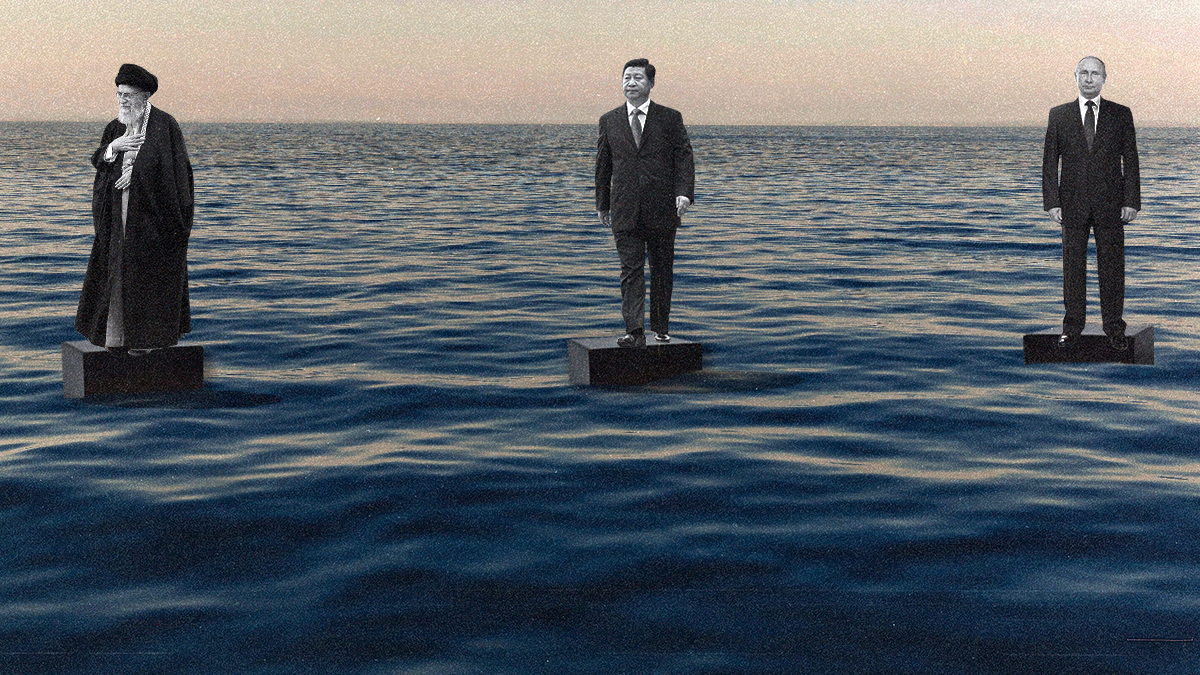January 19, 2023
Think it’s good to be the king? Consider for a moment the predicaments facing the small group of men (virtually all of them are men) who rule Russia, China, and Iran. Vladimir Putin and his accomplices, Xi Jinping and his functionaries, and those who make rules in the Islamic Republic all contend with a basic set of problems that obstruct vital flows of information within their respective countries. That creates serious problems for them — and for the rest of us.
Rulers in Russia, China, and Iran can’t know what their people really think. There are no reliable polls to help them measure the frustrations and fears that led, for example, to hundreds of thousands of young men fleeing Russia to avoid military service in Ukraine. Likewise, Beijing couldn’t predict the large numbers of Chinese who took to the streets last autumn to directly challenge China’s zero-COVID policy, and Iranian leaders have been surprised by how many have challenged the right of police and the government to control their personal behavior and appearance.
These rulers can’t know whom to trust. In authoritarian systems, those hoping to earn and protect their privileges know that pleasing their betters is the shortest path to success. The good news that subordinates provide — we will win the war, everyone loves you, and the situation is fully under control — can never be fully trusted.
They can’t know whether their orders have been carried out. Powerful leaders often take actions that create new sets of winners and losers within the state bureaucracy. Losers within the chain of command may not pass along all of their superiors’ directives and may not invest all the money where it was intended to go (see the Russian military). They have no independent sources of information, whether from a free press or genuine opposition parties, to provide accurate information about what is and isn’t happening.
Their people don’t trust the information they receive. Many Russians, Chinese, and Iranians know their governments are not accurate sources of information. Putin says there is no new plan to conscript more soldiers, but he also said there would be no war and that the “special military operation” in Ukraine was going to plan. Many Chinese are aware that their government's actual COVID containment actions don’t match the official message. Many Iranians know that Israelis, Americans, and Europeans are not the source of their largest problems and that Iran’s government either doesn’t know or doesn’t care what the country’s young people want. In all three countries, dangerous rumors can fill the vacuum created by the state’s lack of credibility.
The rest of the world can’t trust these governments in a crisis. The daily barrage of transparently false information from Russia’s government makes it much harder to contemplate peace talks with Moscow. Why should Ukraine (or anyone else) believe any Kremlin pledge made during negotiations? Official Chinese secrecy over the impact of COVID inside China makes it much more difficult for scientists and other governments to correctly assess global risks from the virus.
Their problems can quickly become our problems. Putin’s total inability to accurately predict responses in Ukraine and the West began a war with impacts on food and fuel prices that are inflicting pain all over the world. The Chinese Communist Party’s compulsion to control flows of information within the country’s borders may well have triggered the entire pandemic and could allow for the emergence of new COVID variants that again cross borders. Iran’s rulers could spark conflict in the Middle East if secrecy around its nuclear program triggers confrontation with Israel, the US, or any of its neighbors.
The bottom line: Yes, democratic governments lie every day. Those who lead them have no monopoly on honesty and virtue. But the presence in these countries of independent media, of genuine opposition parties, and of laws that protect the rights of citizens to speak their mind all provide hope that the harm these governments and their lies can impose on others might be much more easily exposed and contained than in places where a few powerful people call almost all the shots.More For You
- YouTube
On Ian Explains, Ian Bremmer takes a look at the growing surge in global conflict and the ripple effects of so much violence, war, and armed struggle throughout the world.
Most Popular
Think you know what's going on around the world? Here's your chance to prove it.
French President Emmanuel Macron, German Chancellor Friedrich Merz, Ukrainian President Volodymyr Zelenskiy, U.S. Special Envoy Steve Witkoff and businessman Jared Kushner, along with NATO Secretary-General Mark Rutte and otherEuropean leaders, pose for a group photo at the Chancellery in Berlin, Germany, December 15, 2025.
Kay Nietfeld/Pool via REUTERS
The European Union just pulled off something that, a year ago, seemed politically impossible: it froze $247 billion in Russian central bank assets indefinitely, stripping the Kremlin of one of its most reliable pressure points.
Big global stories. Real conversations with world leaders. Our award-winning global affairs show, GZERO World with Ian Bremmer, goes beyond the headlines on the stories that matter most. Here’s a look back at the 10 most quotable moments from this year’s episodes.
© 2025 GZERO Media. All Rights Reserved | A Eurasia Group media company.
